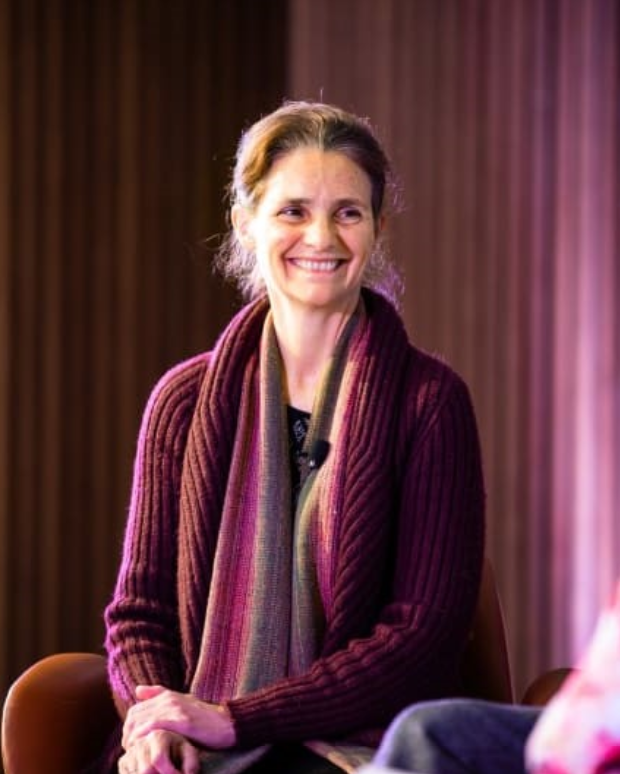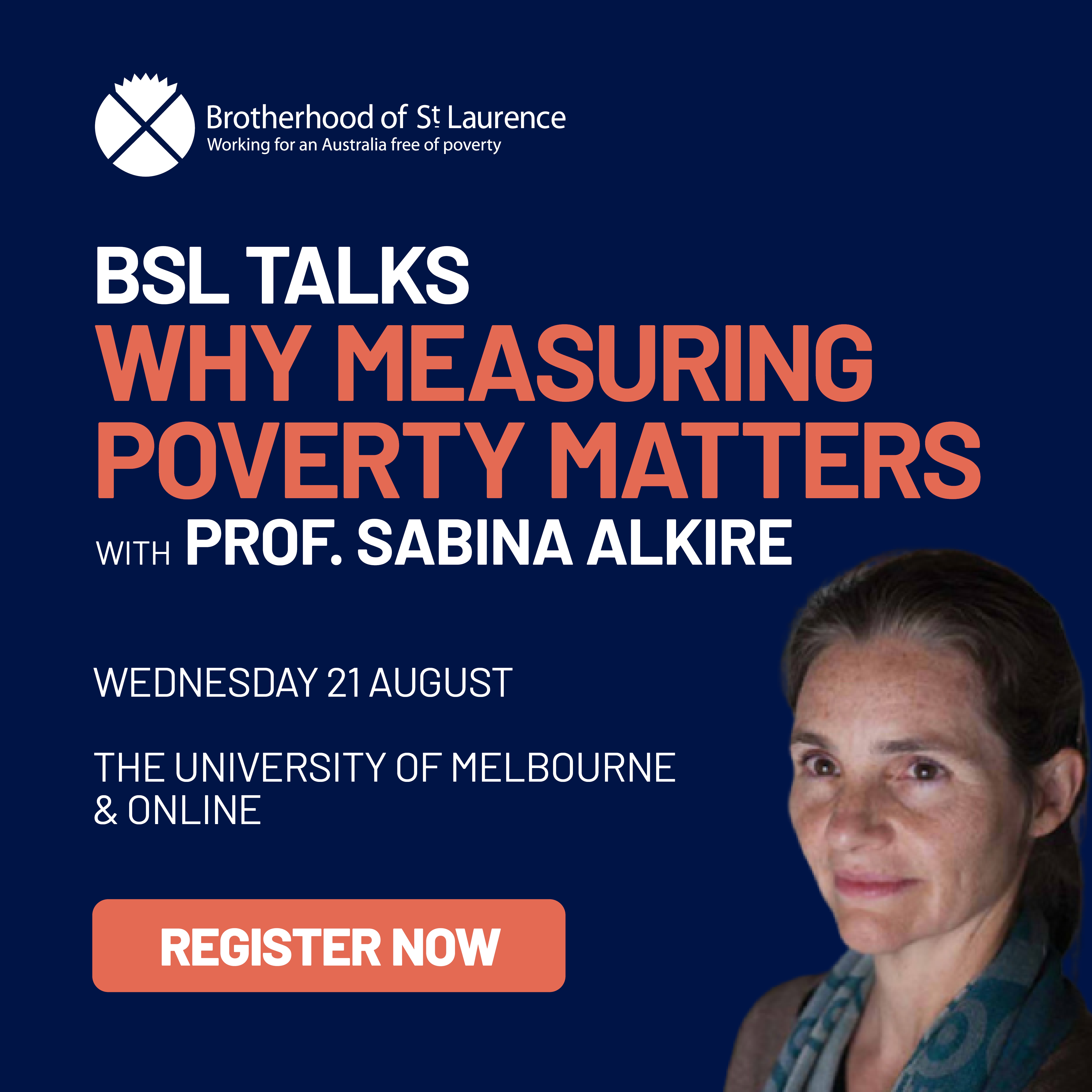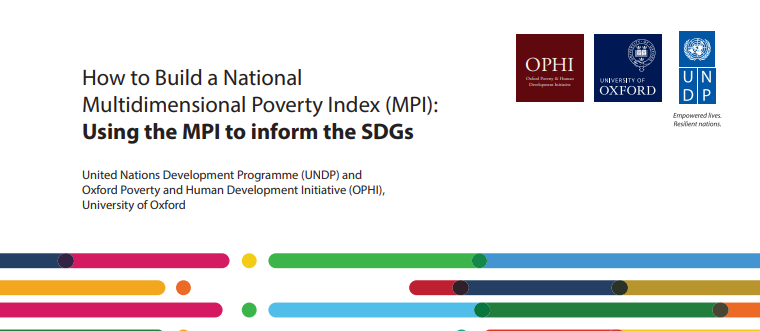Why measuring poverty matters
The benefits of better poverty measurement.

In August 2024, BSL hosted a visit from international expert Professor Sabina Alkire to talk about her work on measuring all forms of poverty, beyond income poverty. Professor Alkire is the Director of the Oxford Poverty and Human Development Initiative (OPHI) at Oxford University in the UK and has worked for decades with colleagues and the United Nations to improve the way poverty is measured and tracked over time.

Together with Professor James Foster, she developed the Alkire-Foster (AF) method for measuring multidimensional poverty, a flexible technique that can incorporate different dimensions, or aspects, of poverty to create measures tailored to a local context.
During her visit to Australia, Professor Alkire spoke with a range of audiences including over 300 people at the annual BSL Sambell Oration, a special edition of our BSL Talks webinar (hosted by the University of Melbourne), academics and community sector social justice advocates , senior officials from Victorian and federal government and key federal Ministers.
Measuring different dimensions of poverty, in addition to the traditional method of measuring income, takes into consideration other important aspects of life that impact a person’s wellbeing – including living conditions, education and health. This not only provides governments and other organisations with a better understanding of the local conditions that need to be addressed, but a way of identifying where resources should be directed.
The method designed by Professor Alkire can be tailored at the national and local level to reflect what is considered important in that setting. Since 2015 when world leaders adopted the Sustainable Development Goals (SDGs), all countries are responsible for establishing and reporting on their own national measure of multidimensional poverty that can be broken down by gender and age.
Since 2008, BSL researchers have worked with the Melbourne Institute to develop a ‘Social Exclusion Monitor’ which similarly looked at ways of measuring different types of disadvantage. The most recent Social Exclusion Monitor , using 2018 data, showed that 1.2 million Australians live in deep social exclusion. This means their opportunities are restricted by experiencing at least four different sorts of disadvantage in their lives, such as being on a low income and having little or no paid work, involvement in community clubs, or social activity.
BSL is excited to be contributing to this important work of developing better ways to measure poverty and disadvantage by introducing Professor Alkire and her work to an Australian audience.

Watch our special edition of BSL Talks with Prof. Sabina Alkire on Wednesday 21 August 2024
Learn more
This roadmap uses real country examples to demonstrate the process for developing a multidimensional poverty measure that makes sense in the local context. It shows the benefits of seeing the full picture of poverty beyond just the traditional measures of income.
Learn more
This handbook published in 2019 by UNDP and the Oxford Poverty and Human Development Initiative (OPHI), University of Oxford, provides practical guidance for policymakers, statisticians, practitioners and others seeking or engaged in developing a national Multidimensional Poverty Index (MPI).
Learn more
Beyond the numbers
We interviewed four members of the BSL community on their lived experience to demonstrate how poverty is about more than just a lack of income.
Watch our video series and learn more about the people behind the numbers, the challenges they face and their stories of resilience